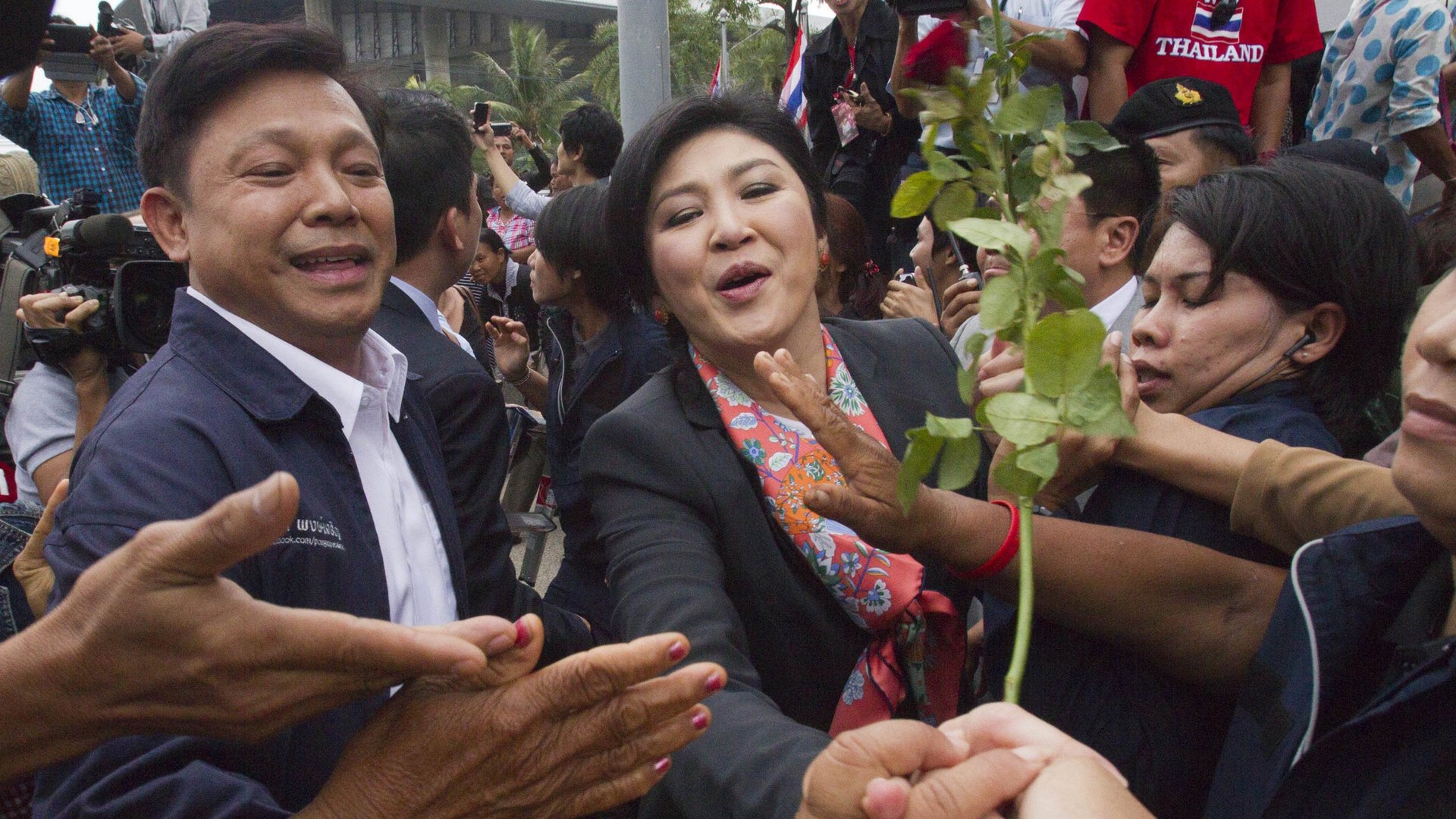Thailand’s “juristocracy” just ousted the prime minister, and more chaos lies ahead
The throngs of protesters didn’t drive Thai prime minister Yingluck Shinawatra from office, but the judges did. The country’s constitutional court ruled today that she abused her power in a personnel shuffle, and removed her from office. The result is sure to sow more confusion in Thailand, a major US ally that has one of the region’s most developed economies—but it’s one that has been suffering due to a political system that seems to alternate between gridlock, violent chaos, and the absurd.


The throngs of protesters didn’t drive Thai prime minister Yingluck Shinawatra from office, but the judges did. The country’s constitutional court ruled today that she abused her power in a personnel shuffle, and removed her from office. The result is sure to sow more confusion in Thailand, a major US ally that has one of the region’s most developed economies—but it’s one that has been suffering due to a political system that seems to alternate between gridlock, violent chaos, and the absurd.
Yingluck’s ouster was widely expected, as the constitutional court is perceived to favor the opposite faction in Thailand’s long-running political struggle. The country is broadly—and, some fear, irrevocably—divided between Bangkok’s wealthy elite and the mostly poor, rural voters who support exiled billionaire and former prime minister Thaksin Shinawatra, Yingluck’s brother.
The constitutional court, made up of nine judges drawn from several other courts, had previously invalidated elections won by pro-Thaksin parties, dissolved political parties aligned with him, and removed two separate pro-Thaksin prime ministers—one of them for appearing on a TV cooking show.
The charges that brought down Shinawatra seem equally petty: The court found that she violated the constitution by removing a national security advisor in 2011. According to her opponents, this reshuffle was designed to open up a separate job for her former brother-in-law. The court also ruled that all cabinet members who were serving in 2011 must leave their posts for countenancing the move. (And it cited the cooking show case as a precedent.)
“This court has a tradition for making ridiculous decisions,” Paul Chambers of the Institute of South East Asian Affairs at Chiang Mai University told Time. “Thailand has become a juristocracy.” Ekachai Chainuvati, the deputy dean of the law faculty at Siam University in Bangkok, told the New York Times that today’s ruling is “total nonsense in a democratic society.”
So who will run Thailand now? Niwattumrong Boonsongpaisan, a cabinet minister, was named as acting prime minister, and much of Yingluck’s cabinet will remain in office, preventing the political vacuum that some had feared. But that’s only a stopgap, since the entire government has been in caretaker mode since Yingluck dissolved parliament and called for elections last year. The vote in February was boycotted by the anti-Thaksin (and misleadingly named) Democrat Party and the results voided by—you guessed it—the constitutional court.
This is the quandary of contemporary Thai politics. Thaksin’s supporters in the populous and economically hearty north and northeast have a clear edge at the polls—they’ve won every national election since 2001. But they have been consistently thwarted by the army (which displaced Thaksin in a 2006 coup) and the courts (which have now removed three pro-Thaksin prime ministers).
Previous setbacks have resulted in violent street clashes between security forces and Thaksin supporters known as red shirts, who have scheduled a protest for May 10 in response to Yingluck’s ouster. The outcome of that rally may determine whether Thai politics are yet again about to swing from absurdity to violence. In any case, chaos seems certain.